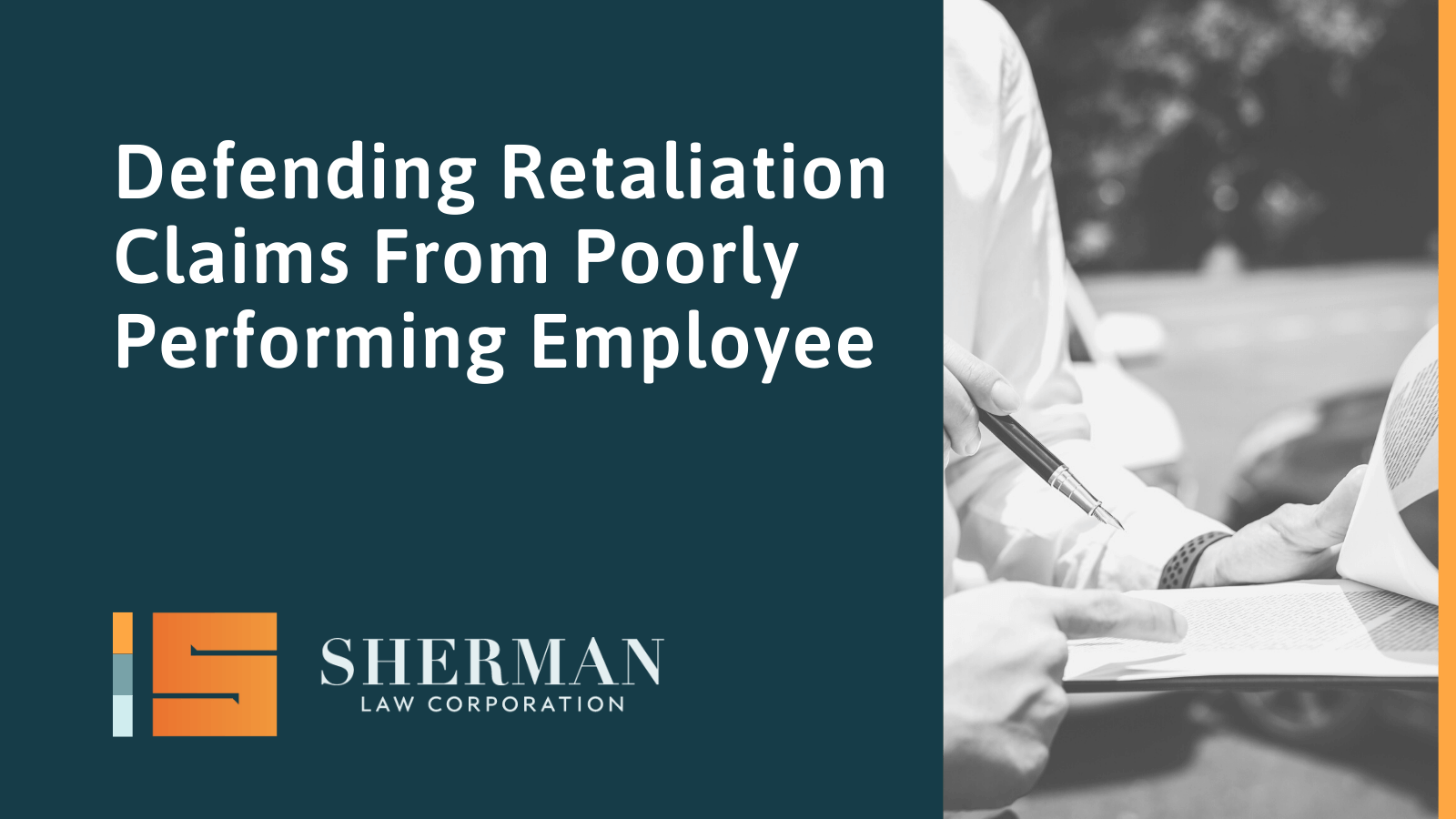
How Can Supervisors Defend Against Retaliation Claims From Poorly Performing Employees?
We are often asked how can a supervisor defend against retaliation claims if an under-achieving employee continues to perform poorly after the employee made a complaint?
It is hardly a surprise that an underperforming employee who made a complaint continues to perform poorly at work. If the employee was counseled before the complaint and engages in similar conduct after the complaint, the employer should continue to counsel the employee in the same manner as before. If the punishment is harsher than before the complaint, then arguably, the employee will claim it was in retaliation for making the complaint. Any post-complaint misconduct should not be acted upon, until it is fully vetted by human resources, counsel and/or others, with fully documented evidence to support the misconduct with carefully worded counseling.
Not all actions are material, or adverse, but often times post-complaint retaliation consists of a hodgepodge of conduct where the employee claims to be singled out, ostracized, and treated harsher because of the complaint. The conduct may include not being asked to go to lunch, given poor assignments, etc. While it is always wise for supervisors to avoid any interactions with the complainant to avoid retaliation claims, if prior to the complaint, you invited the complainant to lunch as you did others, as long as you inform the complainant that s/he is free to join and you are not singling them out you can get ahead of any such claims. The best defense to a retaliation claim is treating the complainant better than before the complaint. For example, if there is extra overtime that is usually shared, offer it to the complainant. If the employee was upset with your tone, make sure all communications (in writing) are exceedingly pleasant and inviting. Nothing beats a retaliation claim more than celebrating the complainant’s birthday with a cake at the office.




